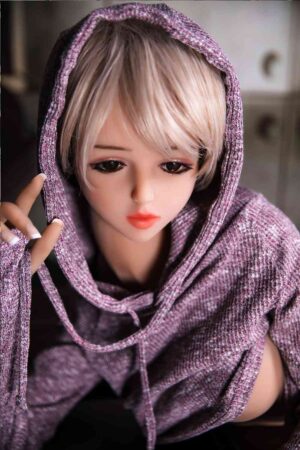The Allure and Controversy of Hentai Sex Dolls
In recent years, the sex toy industry has seen rapid advancements and diversification, with one of the more intriguing and contentious developments being the rise of hentai sex dolls. Inspired by the distinctive art style of Japanese hentai, these dolls are designed to fulfill specific fantasies for enthusiasts of this genre. This article delves into the appeal, the controversy, and the cultural implications of hentai sex dolls.
The Appeal of Hentai Sex Dolls
Hentai sex dolls cater to a niche market of individuals who are fans of hentai—Japanese erotic art that features exaggerated and fantastical characters. The appeal of these dolls lies in their ability to bring these fantastical characters to life, offering a tangible representation of beloved figures from hentai animations and comics.
Customization and Realism: Modern technology allows for highly detailed and customizable dolls. Buyers can choose specific features such as body type, hair color, eye shape, and even specific character attributes, making each doll unique and tailored to individual preferences.
Fantasy Fulfillment: For many, hentai sex dolls offer a way to live out fantasies that are otherwise unattainable. They provide an outlet for creativity and imagination, allowing users to engage with their favorite characters in a physical form.
Collectibility: Beyond their functional use, hentai sex dolls are often seen as collectibles. Fans of the genre may purchase these dolls as a form of fandom expression, akin to collecting action figures or other memorabilia.
The Controversy Surrounding Hentai Sex Dolls
Despite their popularity, hentai sex dolls are not without controversy. Several ethical and social concerns have been raised regarding their use and implications.
Objectification and Unrealistic Standards: Critics argue that hentai sex dolls perpetuate unrealistic body standards and contribute to the objectification of women. The exaggerated features of these dolls—often large breasts, tiny waists, and exaggerated facial expressions—can reinforce harmful stereotypes about femininity and beauty.
Cultural Sensitivity: There is also the issue of cultural sensitivity. Hentai, as a genre, is a significant part of Japanese culture, and its global commercialization through sex dolls can be seen as cultural appropriation. The fetishization of Japanese art and characters can sometimes overshadow the cultural significance and context of hentai.
Legal and Ethical Concerns: In some regions, the legality of owning and distributing hentai sex dolls can be a grey area. Laws vary widely, and in certain places, the production and sale of such dolls might be restricted or outright banned. Ethical debates also arise concerning the potential for these dolls to encourage unhealthy or even illegal behaviors.
The Cultural Implications
The rise of hentai sex dolls highlights a broader trend in the sex toy industry towards customization and the blending of fantasy with reality. It also raises important questions about the role of fantasy in sexual health and expression.
Sexual Expression: For many, these dolls represent a form of sexual expression and personal exploration. They can provide a safe space for individuals to explore their desires and fantasies without judgment.
Technological Advancements: The development of hentai sex dolls showcases the rapid advancements in materials and manufacturing technologies within the sex toy industry. This progress reflects a growing market demand for highly personalized and realistic products.
Changing Attitudes: The increasing acceptance and popularity of Curvy Sex Dolls may signal a shift in societal attitudes towards sex toys and sexual expression. As these products become more mainstream, they could lead to a broader acceptance of diverse sexual preferences and fantasies.

.jpg)


Comments
Post a Comment